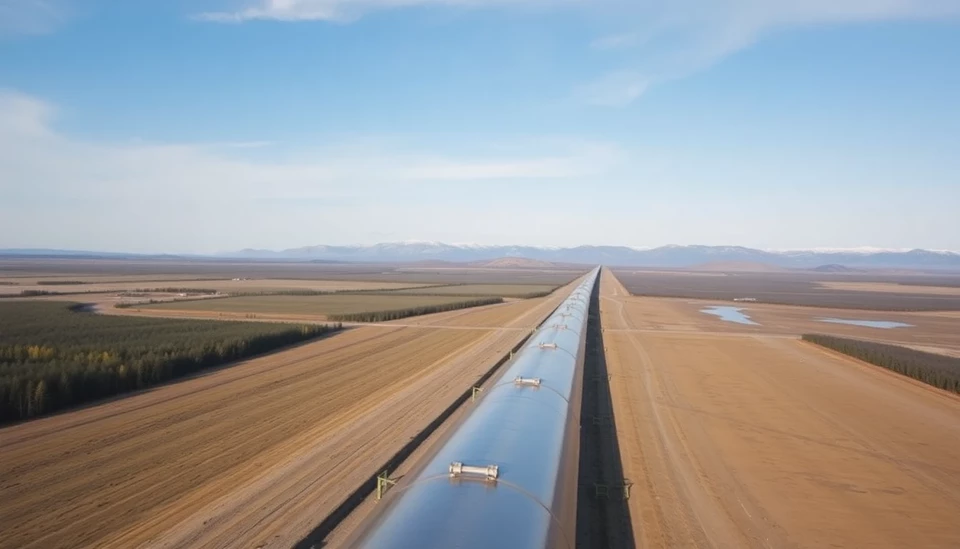
A comprehensive report has unveiled significant financial figures surrounding Canada's latest oil pipeline initiative, with potential costs soaring up to $24 billion. This ambitious project aims to enhance the country’s energy infrastructure and bolster its position in the global oil market. As Canada seeks to expand its export capabilities, this pipeline project is seen as crucial for both economic growth and energy independence.
The report details not just the projected costs but also emphasizes the strategic importance of the pipeline in connecting rich oil reserves from Alberta to market hubs in the U.S. The increased capacity is anticipated to facilitate a substantial rise in crude oil transportation, directly impacting both local and international energy markets.
Industry experts assert that the completion of this pipeline could significantly influence Canada's GDP, create thousands of jobs, and enhance energy security. However, it also raises several environmental concerns and opposition from indigenous groups, which have sparked debates across the nation on the balance between economic opportunity and ecological preservation.
As the project moves forward, the government has indicated its commitment to ensure that environmental safeguards are prioritized, asserting that newer technologies will mitigate potential ecological impacts. This commitment, however, faces skepticism from environmentalists and community advocates who stress the pressing need for a transition towards renewable energy sources.
The Canadian government is framed as a key player in the global energy sector with this pipeline project. Given the fluctuating energy prices and the ongoing demand for oil, the new pipeline is positioned as a strategic move intended to capitalize on favorable market conditions. Initial assessments indicate that once operational, the project could boost Canada’s crude oil output significantly, potentially leading the country towards achieving its ambitious marketing goals.
As alternative energy sources gain traction worldwide, the necessity for robust infrastructure to transport fossil fuels remains a contentious topic. Observers will be closely monitoring the project's developments as the government balances economic ambitions with social and environmental responsibilities.
In conclusion, Canada’s new oil pipeline project not only encapsulates the pressing realities of energy economics but also prompts critical discussions regarding the future of energy in a changing global landscape. With the potential valuation of up to $24 billion, all eyes will be on the unfolding narrative of this transformative initiative.
#CanadaOilPipeline #EnergyInfrastructure #CrudeOil #EconomicGrowth #EnvironmentalConcerns #IndigenousRights #EnergySecurity #RenewableEnergyTransition
Author: Sophie Bennett




